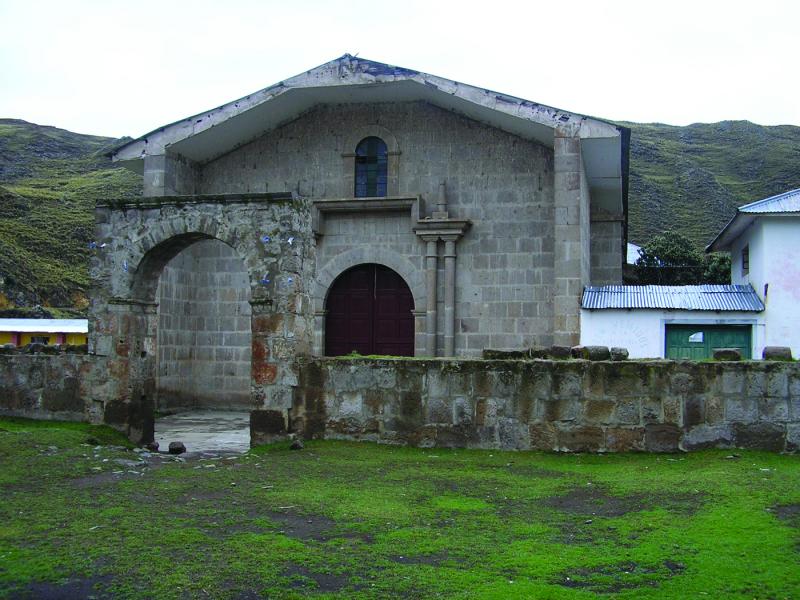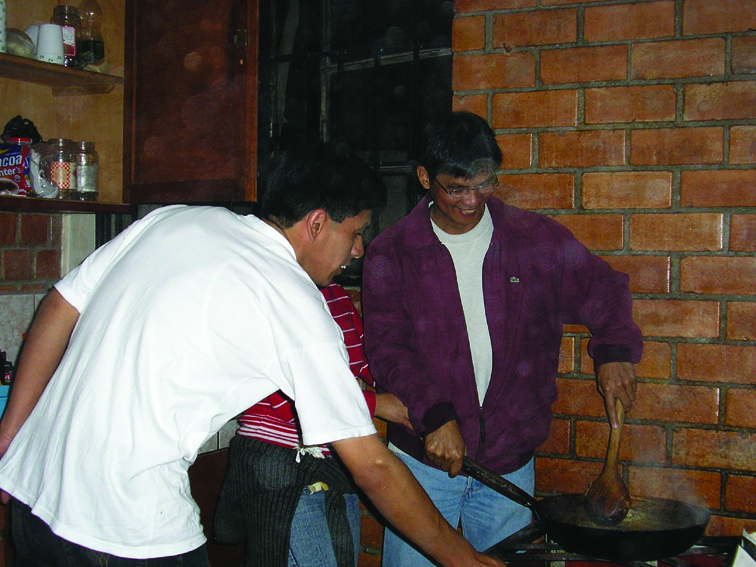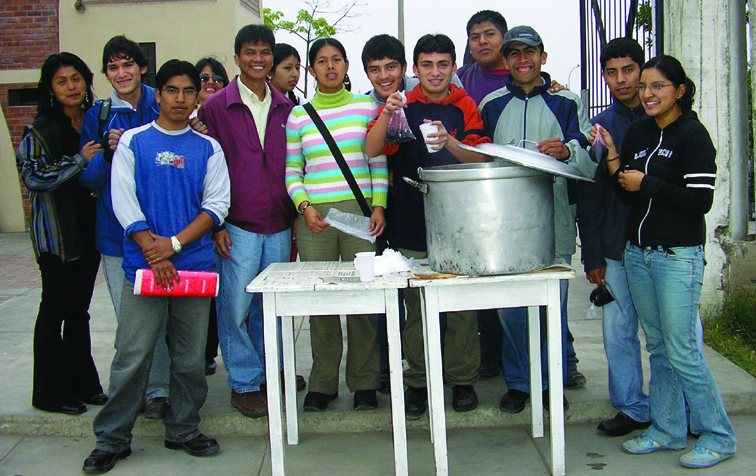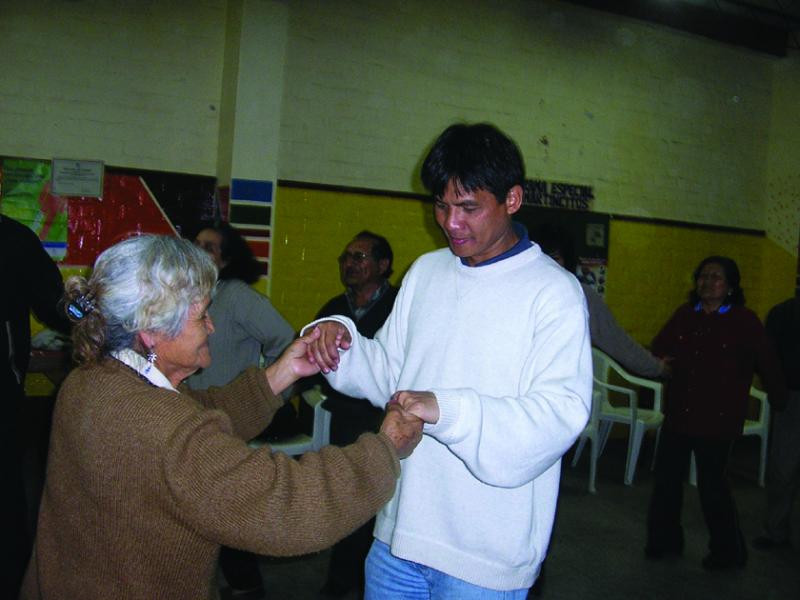First Five Months As A Missionary
by Monsignor Allen A. Aganon
Monsignor Aganon, ordained 18 September 1982, has been rector of San Carlos Major Seminary, Makati City, and was the first Filipino parish priest of St Joseph Parish, Las Piñas City, home of the Bamboo Organ, Diocese of Parañaque, before leaving for South America. He is now studying Quechua, in preparation for working in a small town in the southern Andes.

It’s a long way from the Philippines to South America. But for God there’s no such thing as a far place. His call can bring anyone anywhere, anytime. In his mysterious ways, God was preparing me through my 22 years of priestly life to respond willingly to his call to mission ministry. Two year ago, I had made my decision to volunteer for such. I was just waiting for the right time to do it. In a providential stroke, I received an invitation letter from the Society of St. James the Apostle (www.socstjames.com) to join, giving me an opportunity to work as missionary in South America. I felt that the Society would give me chance to be a missionary while retaining my diocesan vocation.

I had my introduction to missionary life and first insights into the culture, history, Church and people of South America during five months of studying Spanish in Instituto de Idiomas Maryknoll(www.maryknoll.org/EDUCA/STUDY/mli.htm), Cochabamba, Bolivia.

After the course, I flew to Lima, Peru, just before Christmas 2004. I was welcomed by Father Eugene Kirke, the country coordinator of the Society, and the other members working around Lima. Father Eugene, an Irishman, and I discussed where I could work. We agreed that I go to Villa El Salvador to help Father John O'Leary, another Irishman, in San Martin de La Caridad parish.
In my first five months in Villa El Salvador, I went through various stages.
The first stage began in the first few weeks when I was confronted with the reality that adjustment wouldn’t be easy, especially in communication. In my first encounters with the people, I found that I didn’t understand what they were saying and they didn’t understand what I was trying to say. I felt frustrated and often panicky, asking myself, ‘Will I be able to communicate with them? And when?’

Father Allen with parishioners,
young and old.
Fortunately, the encouragement and assurance of my brother priests made me more patient with myself. They’d always tell me that they too had experienced what I was experiencing. To know and speak another language and, more so, to understand the people and their culture, takes time. The consoling words were, ‘I will learn “little by little,”’ or as we say in Spanish, ‘poco a poco.’
Then I gradually entered into a second stage. I listened and observed more and spoke less. I tried tolisten to what the people were saying. I got to recognize some of the words; at times I could get the general idea of what they were saying. I tried to make sense of everything I was experiencing. I made mental notes of the new and different realities I was encountering. I also recognized situations and customs that were familiar because of my past experiences in the ministry. I felt a certain inadequacy, loss and lack of patience with myself, perhaps because of high expectations. Because of these feelings, I was actively observing but passively participating in various encounters I had. Of course, there were instances where I had to be actively engaged, like celebrating the Eucharist and preaching, hearing confessions, greeting the people after Mass, and visiting the sick. I would spent long hours in preparing and writing my weekday and Sundays homilies. I had to read them at Mass. If not, I’d have a mental block. The people were very understanding and patient with me.
And the third stage was the feeling that ‘enough is enough.’ I couldn’t hide my inadequacy by being silent and preoccupied with what I was saying. So I started to talk and expressed my ideas. And last Pentecost Sunday, I delivered my homily at the youth Mass without my written text. I felt a certain sense of freedom when I was talking to them. I felt happy in spite of the many grammatical mistakes I made. I felt they understood me more because I could express what was in my heart.
This sense of freedom and new way of being with myself and with others opened my eyes to see the different gifts and uniqueness of the communities and persons I was encountering. Knowing their daily struggle to have at least a dignified life made me appreciate who they are. It is a humbling and inspiring experience to witness the generosity and commitment of the many adults and young people in the parish.
My initial experiences helped me to recognize the wisdom of ‘walking with people in their life's journey.’ I think this shapes the life of a ‘beginner missionary’ like me. My experience of being helpless and lost has taught me patience and respect for the process of incorporating myself into new people, situations and culture. It has been humbling, yet at the same time, enriching. Perhaps this initial experience is teaching me to walk more at the side of the people as we are trying to discover together where God is leading his community.
